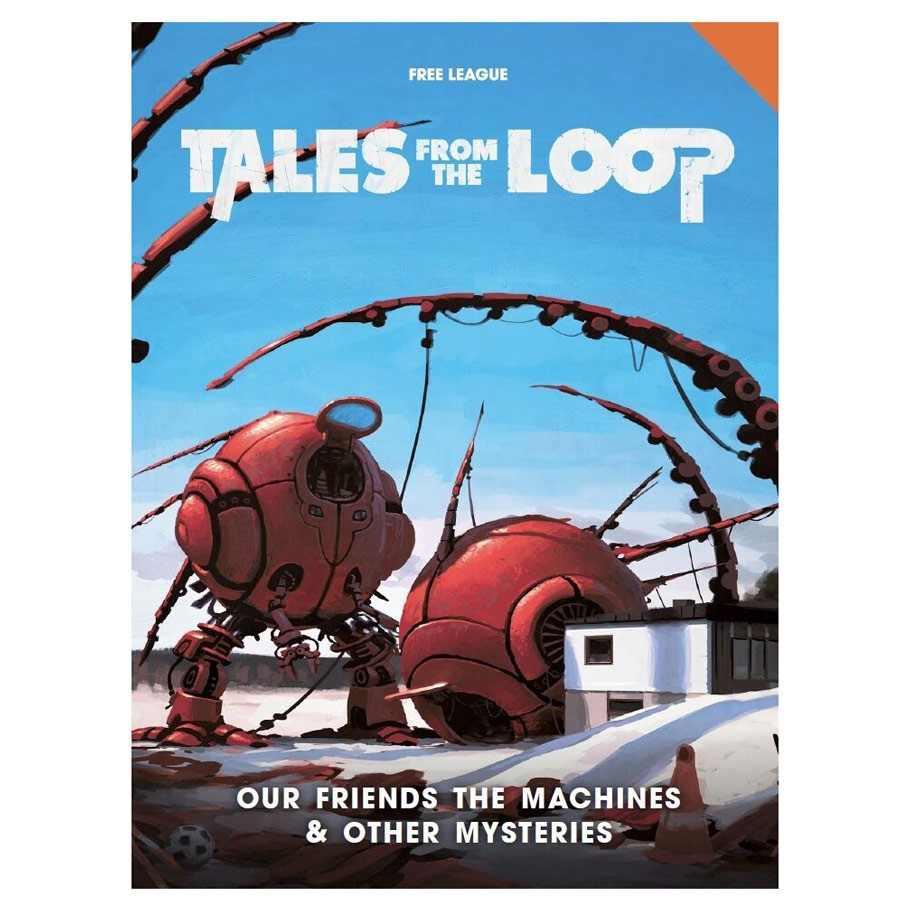In my A Game Per Year project, my goal has been to read one roleplaying game corebook for every year they’ve been published. However, I soon started to feel that it was hard to decipher how the games were really meant to be played. For this reason, I decided to start a parallel project, An Adventure Per Year, to read one roleplaying adventure for each year they’ve been published.

Tales from the Loop is a roleplaying game based on the art and worldbuilding by Simon Stålenhag. It’s set in an alternative Sweden of the 80’s, with the player characters as Kids who explore wonders of mysterious technology and strange occurrences in their home town. The game is reminiscent of Stranger Things but the tone is more melancholy. The best thing about the game is how Swedish everything is. The names, the themes, the culture and the locations all evoke a very specific context.
Our Friends the Machines & Other Mysteries is a collection of adventures for Tales from the Loop. The game and the adventures run on nostalgia for a childhood spent in the 80’s so there’s definitely a generational aspect to the experience. At the same time, it avoids making childhood too Spielbergian and sentimental. The everyday terrors are always present and sometimes the miracles of machinery provide a welcome relief from difficult home life.
One of the adventures takes its inspiration from the moral panics of the era, when metal music, horror movies and roleplaying games where thought to corrupt youth. It includes a sympathetic trans woman character who’s presence and role in the adventure connects the conservative panics of yesterday with anti-trans panics of today.
Nostalgia often makes you feel good but it’s also a death impulse. You have to go beyond it to find anything meaningful. Our Friends the Machines & Other Mysteries moves between the cultural complexities caused by imports like Transformers and the genuine terror caused by a gang of bullies. Some of the smaller adventures in the book go surprisingly dark, suggesting a serious, adult play experience. But perhaps that makes sense, given that the game’s nostalgia is pitched for a generation in their middle age.
Many people in Sweden have Finnish family backgrounds or Finnish names. This is reflected in the adventures too, with supporting characters like Margareta Koskinen. As a Finn, you understand that you come from a small country and your culture is very rarely reflected in anything from other countries. It’s nice to see an exception, especially when the connections are casual, organic and jibe with real life experience.